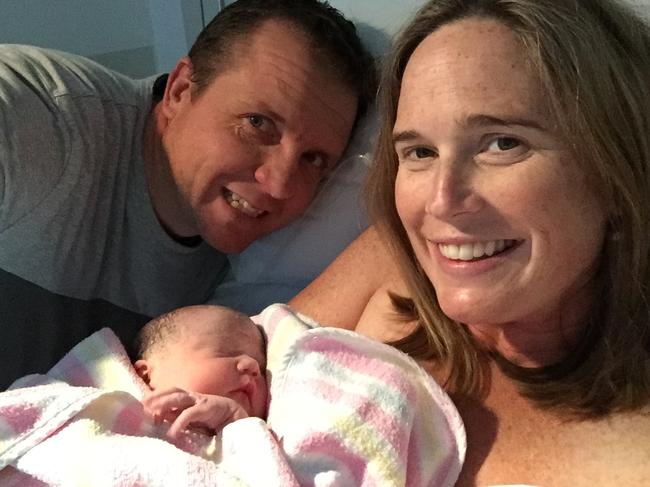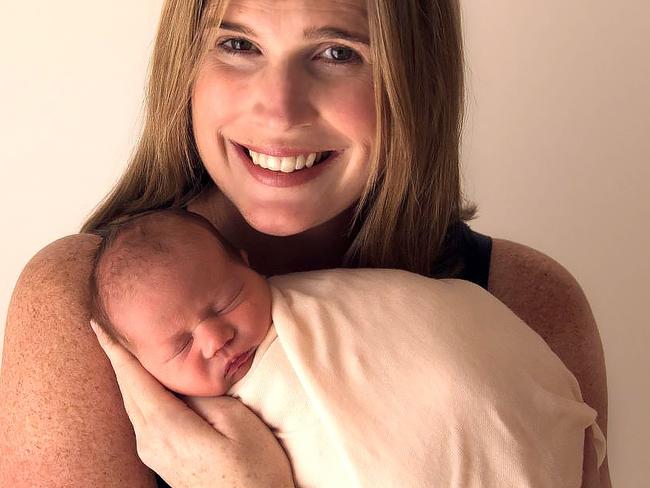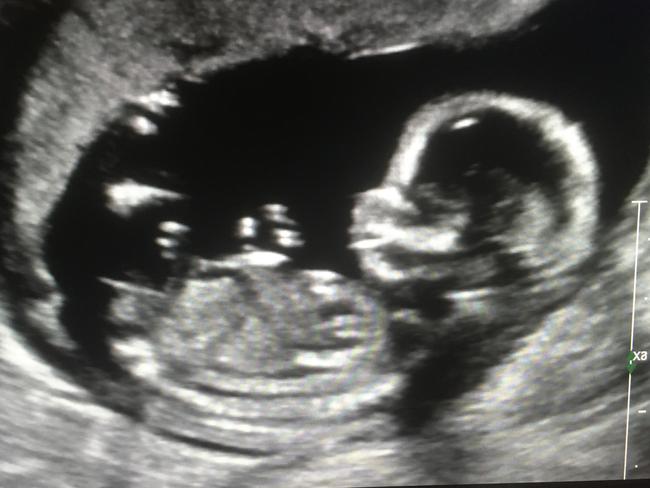Doctors warn of common virus that can kill your unborn child
IT’S a common childhood virus - and one considered a rite of passage for those in childcare. But for pregnant mothers, Parvovirus could prove fatal - as one came close to finding out.
KATE Penfold never imagined a common virus could be a danger to her unborn child — until she caught it and it nearly killed her baby.
Parvovirus, also known as “slapped cheek” usually only causes a distinctive rash on cheeks and a mild rash on the upper body in mostly preschool-aged children.
But, if the airborne virus is passed on to pregnant mums, it can cross the placenta and cause severe anaemia. Parvovirus is thought to cause about 10 stillbirths a year.
As cases of the virus commonly increase in spring, doctors are warning pregnant women they need to take precautions if exposed.

MORE FROM JANE HANSEN
HOSPITALS WHERE YOU’RE MORE LIKELY TO CONTRACT SEPSIS
PLEA TO MAKE MENINGOCOCCAL VACCINE FREE
“Most women have not heard of parvovirus and are unaware of the harm it can do to their unborn baby,” Associate Professor Daniel Challis, Medical Advisor to the NSW Pregnancy and Newborn Services Network said.
“If a pregnant woman is infected with parvovirus, the virus goes across to the foetus and suppresses their bone marrow production. In about five per cent of cases the babies become severely anaemic and go into heart failure and die.”
Ms Penfold, 38, is a Jervis Bay-based sonographer who performs ultrasounds on babies for a living. She noticed her unborn baby had stopped moving around the 22-week mark and performed an ultrasound on herself.

“I’d recently had the 20-week scan and all was normal, but at 22 weeks I wasn’t feeling crash hot so I scanned myself and found all these abnormalities like enlarged heart and liver and fluid inside the baby,’ she said.
Within a day the baby was diagnosed with parvovirus and had become severely anaemic as a result.
The treatment is a blood transfusion given through the umbilical cord.
Prof Challis said it was a very close call.
“By the time we put the needle in (to transfuse the baby) she was very nearly dead, one more day and it could have been a stillbirth and this is not an uncommon story,” Prof Challis said.
“We only had a matter of hours before her demise,” Ms Penfold said.
Luckily, baby Hannah recovered quickly and was born perfectly healthy in May.
Few women are aware of the risks and symptoms can go unnoticed.

“I had no symptoms and my toddler was probably the introduction, he is at daycare and he had a mild rash on his skin eight weeks prior so it was around that time,” she said.
“I did not know it was a risk and I work in the industry.”
There are approximately a dozen serious cases of parvovirus in pregnant women every year, Prof Challis said.
About half of all women would be immune as they would have contracted the virus when they were a child. But others must seek help if they think they have been exposed.
“If they suspect they have been exposed to parvovirus, they should first go to their GP or obstetrician or midwife and get a blood test to see if they are immune to it. In most cases nothing happens but we scan them every week — it can take up to 10 weeks before anaemia shows — and then we can give a blood transfusion performed through the umbilical cord,” Prof Challis said.
